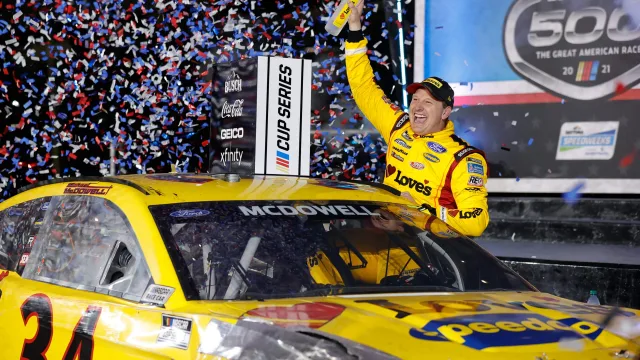Michael McDowell recently spoke candidly about an important issue stirring the NASCAR world—while drivers like himself take the spotlight, it’s the road crews who often endure the most difficult conditions, working grueling hours away from their families throughout the demanding race season. As discussions intensify about the mental and physical strain on racing crews, McDowell’s comments echo a growing chorus among drivers calling for more recognition, compassion, and perhaps systemic change.
This conversation began gaining traction after Alex Bowman openly advocated for a shorter NASCAR season, aiming to ease the burden on the crews rather than the drivers. Bowman emphasized that while drivers’ schedules are certainly intense, it’s the men and women on the crew who labor through the night—sometimes until 3 a.m.—and must be ready to hit the ground running again just hours later, keeping cars in top condition week after week.
Michael McDowell, reflecting on this reality during a guest appearance on The Elvis Blueprint podcast, provided a transparent look at how the life of a driver differs from that of the crew. According to McDowell, he is able to prioritize his family and often brings them with him on weekends, blending professional and personal worlds in a way that crew members simply cannot. As he explained,
I’m super fortunate because being a driver, it allows me to do that [bring his family on the racetracks]. These guys here at the shop — they can’t bring their family, and they’re missing all those moments. And so it’s such a hard sport on the family unit that we just made it a priority that this is how we’re going to do it.
The conversation highlighted how the intense travel and late hours don’t stop when the checkered flag drops; even in the off-season, crew members are hard at work refining cars to meet the high expectations of drivers like Michael McDowell. Calls for a shortened season have grown louder, with many arguing that it could give hardworking crew members a chance to catch their breath and spend cherished time with loved ones.
However, the financial stakes complicate the issue. Joey Logano, the 2024 NASCAR Cup champion, pointed out that reducing the number of races would likely reduce salaries and jeopardize crucial sponsor relationships, making the idea less feasible for teams, despite its moral appeal.
Michael McDowell’s perspective has brought vital attention to the disparities between those who receive public recognition in NASCAR and those who make racing possible behind the scenes. The debate over season length and crew welfare is far from resolved, but with more drivers using their platforms to elevate this conversation, the sport may eventually move toward solutions that reflect both financial realities and human needs. As the dialogue unfolds, fans, teams, and stakeholders alike watch closely, hoping for a future where the spotlight shines more fairly on every contributor to the thrilling world of racing.
